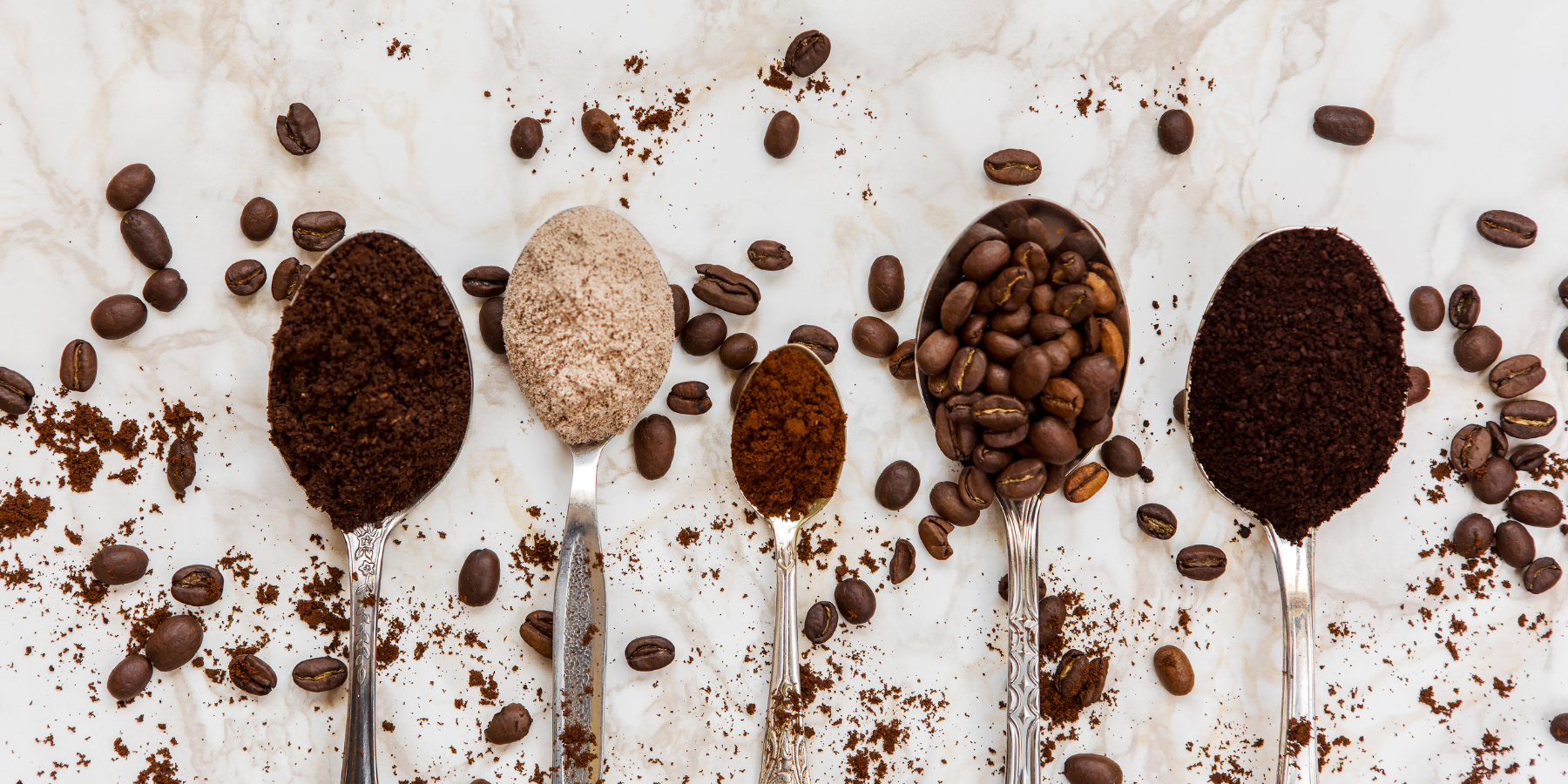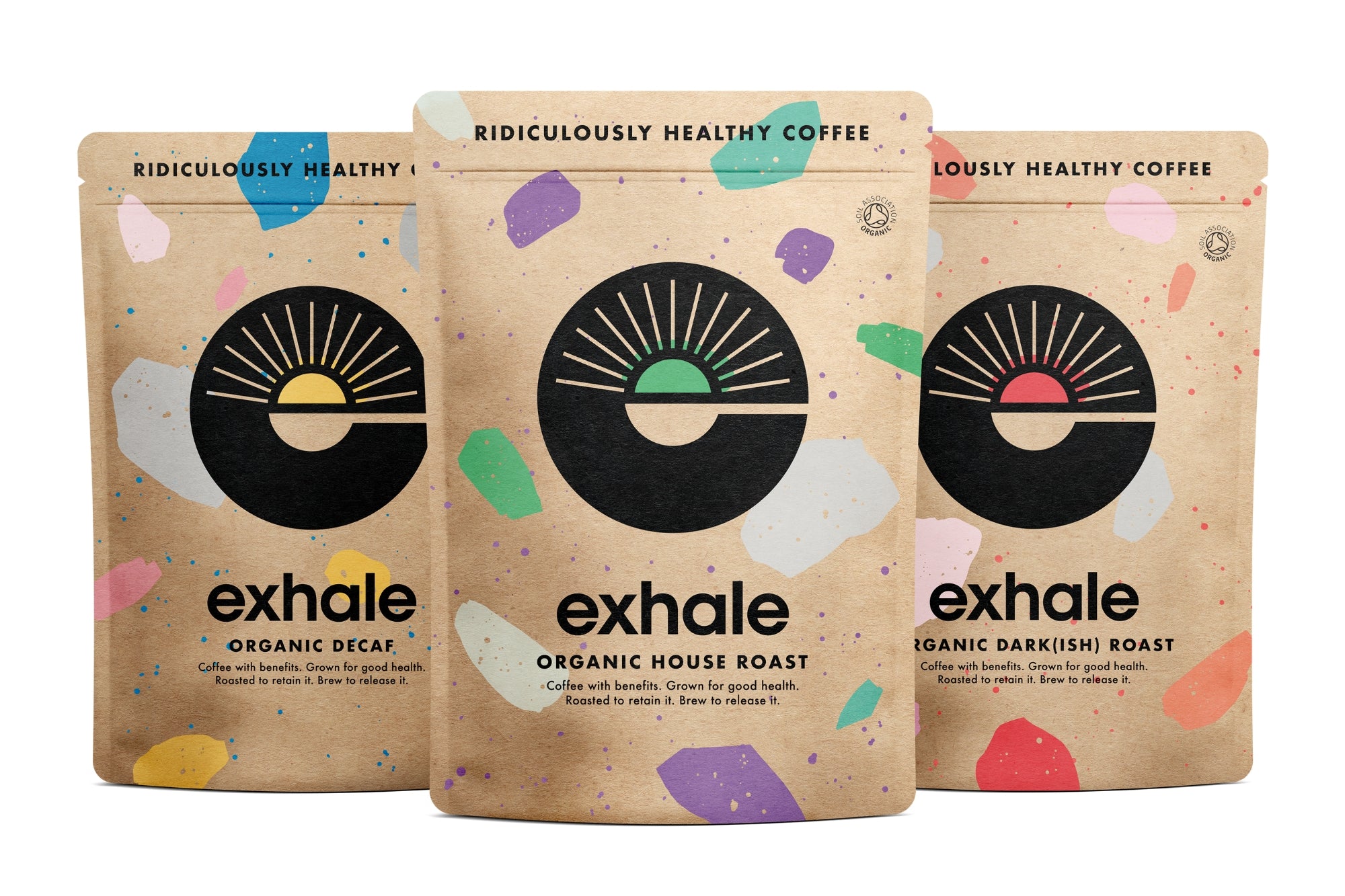Should you stop adding milk to your coffee? Or could there be some benefits to adding milk to your coffee? Let's find the definitive answer once and for all!
Ah milk, deliciously polarising milk. Never before has something had the power to divide a nation quite like milk!
First up there’s dairy or plant-based milks. You may think that’s an easy one to choose between but after you’ve made that call, that’s where the fun really begins...
Then there’s raw milk, there’s milk from A2 dairy. Milk from regenerative farms. Milk from industrialised ‘farty’, cows. Organic milk. Full fat, semi or skimmed – which is healthiest? Or should you choose oat milk? Almond milk? Or even split pea milk?! But what’s been added to these ‘mylks’... are seed oils found in most barista milks bad for you? Are there thickeners, gums or any other additives in there?

It’s truly a minefield. I could write 10 blogs on it all, and that's before we get on to the topic of the ethics of different milks. Until now I’ve stayed mostly out of it.
But as if it’s not already confusing enough, recently there have been a handful blogs, tweets and posts by doctors and influencers alike claiming that you shouldn’t add milk to your coffee!
Apparently because it hinders your bodies ability to absorb the polyphenols in coffee. And it potentially reduces it’s antioxidant effects.
After spending years researching and testing to source then roast the healthiest possible coffee, if all that’s ruined by adding milk then that’s not good news at all!
Since we’re all about helping you get the most health benefits possible from your daily cuppa, I thought that’d be a great place for me to start exploring the murky world of milks!
First up, what are polyphenols and antioxidants? And why would you want them?
Polyphenols are plant-based phytonutrients common in most fruits and vegetables. They have powerful antioxidant and anti-inflammatory effects and have been linked to many many health benefits.
To fully explain them is beyond the scope of this blog so to learn all about what polyphenols and antioxidants are and why you want them in your life check out our ‘Science’ page.
The case against milk: Why you shouldn’t add milk to coffee
There are indeed a handful of studies which conclude that adding milk to coffee can reduce it’s antioxidant effects and the bioavailability of it’s polyphenols.
These are the studies which seem to have elicited all the recent press:
STUDY 1: Effect of milk addition and processing on the antioxidant capacity and phenolic bioaccessibility of coffee by using an in vitro gastrointestinal digestion model"
PMID: 31648096 (1)
In March 2020, Food Chemistry published a study investigating the effects of different types of cow’s milk on the antioxidant capacity and bioaccessibility of polyphenols in coffee using simulated digestion.

They found that the antioxidant capacities either were unchanged or decreased in their various samples and that the total phenolic bioaccessibility decreased across the board. In their tests skimmed milk was worse than whole milk.
STUDY 2: Review of the Role of Fluid Dairy in Delivery of Polyphenolic Compounds in the Diet: Chocolate Milk, Coffee Beverages, Matcha Green Tea, and Beyond
PMID: 31242953 (2)
The Journal of AOAC International published a review in December 2019 which looked at the effects of combining milk with a range of foods containing polyphenols, including coffee.
They saw that polyphenols easily react with components in other foods they are combined with which in turn affects their nutritional properties.
They concluded that adding milk reduces the antioxidant properties of coffee polyphenols thus ‘dramatically decreasing or impairing the health-beneficial properties of such beverages’.

The case for milk: Why it’s ok to add milk to your coffee
Recently there have been a number of studies which support adding milk to your coffee... and some showing it could even be beneficial!
STUDY 3: A Comprehensive Review on the Interaction of Milk Protein Concentrates with Plant-Based Polyphenolics
PMID: 34948345 (3)
As the name suggests, this study discusses how polyphenols from a variety of plant-based foods (including coffee) can provide ‘nutraceutical benefits to the human body’. It looks at how the addition of milk affects their various interactions in the body.
They conclude ‘the interaction of polyphenols with milk significantly improves the bioactivity of the polyphenolic compounds’.

They also show ‘the binding of (poly)phenolic compounds and milk proteins greatly influence the digestibility of proteins, the bioavailability of (poly)phenols, and essential amino acids’.
STUDY 4: Coffee Polyphenol, Chlorogenic Acid, Suppresses Brain Aging and Its Effects Are Enhanced by Milk Fat Globule Membrane Components
PMID: 35628642 (4)
Also published in the International Journal of Molecular Science but in May 2022.
Researchers in this study fed mice with coffee polyphenols and milk then assessed it’s impact on markers of brain aging.
They saw an increase in survival rate with ‘suppressed inflammation in the old brain, resulting in a preventative effect on brain aging’.
Before finally concluding that ‘taken together, the increase in survival rate suggests that that adding milk to coffee may improve not only the taste, but also the function.’
STUDY 5: In vitro phenolic bioaccessibility of coffee beverages with milk and soy subjected to thermal treatment and protein-phenolic interactions
PMID: 34823942 (5)
Published in Food Chemistry in May 2022, researchers assessed whether adding cow’s milk or soy milk would affect the bio-accessibility of polyphenols.
They showed that compared with soy protein, the addition of skimmed cow’s milk ‘significantly enhanced the in vitro bioaccessibility of coffee polyphenols’. With both increasing the bioaccessibility vs none by up to 64% in cow’s milk.

STUDY 6: Coffee simulated inhibition of pancreatic lipase and antioxidant activities: Effect of milk and decaffeination
PMID: 36076418 (6)
Food Research International published another study in October 2022 relevant to our investigation...
They explain how coffee is a rich source of polyphenols which, through lipase inhibition, may ‘prevent or treat’ a range of diseases including type 2 diabetes, chronic liver diseases and obesity.
Incidentally, this is one reason why we source and roast Exhale coffee to be especially high in polyphenols, check out our full range of high polyphenol coffees here.
They concluded that ‘milk-added coffee beverages have a greater effect on lipase inhibition’ which they thought may be because milk increases the bioaccessibility of coffee’s polyphenols.
What about polyphenols in other foods?
Studies show coffee is the major provider of dietary polyphenols and antioxidants, providing up to 66% of your total dietary intake (7,8). But most other plant-based foods also contain some level of polyphenols.
If we look outside of coffee, there has also been extensive research into how combining them with milk affects the bioaccessibility of polyphenols from other foods such as blueberries or green tea.
The weight of the research here, including very recent studies published in the last few months, is largely in favour of milk improving the bioaccessibility of polyphenols, but again there are studies on both sides of the argument (9-12).

What are the other health considerations when adding milk to your coffee?
- Adding milk will break your fast
Intermittent fasting is now hugely popular with a variety of health benefits being reported.
Drinking black coffee is fine, it has no calories so won’t break your fast. But adding milk will most certainly break your fast, whether that’s your first cup of the day or a cup of decaf before bed (read our blog on decaf for more on why we recommend that). What's the Deal With Decaf?
- Adding milk may help if you suffer from stomach acid.
If you have issues with stomach acid then it's been suggested that adding milk could help by offsetting some of the acidity of coffee. But see how it makes you feel personally because everyone's stomach issues are pretty unique. And different qualities of coffees and different types of milks will react differently in different people.
- Drinking hot drinks is linked to causing esophageal cancer
There is some older research showing that drinking hot drinks like coffee and tea can be a cause of esophageal cancer if drank too hot (13).
But it’s another hotly disputed topic (see what I did there?) (14).
So the jury’s out. But while I used to proudly wear my ‘asbestos mouth’ badge as a teen, I think there’s enough research that hot drinks can at least irritate your esophagus to make me now leave my coffee to cool slightly before downing it.
Adding (cold) milk will all but negate that issue as it will drop the temperature of coffee to a safely palatable level.
- Milk can boost the nutritional profile of coffee
Whether you’re drinking a type of cow’s milk or some type of plant-based milk, it will have nutritional benefits of it’s own. Look up your own favourite type of milk, but they will all have some combination of proteins, fats, vitamins such as vitamin D, calcium, and can be a rich source of minerals like potassium.
Therefore, adding milk to your coffee will certainly boost the variety and type of nutrition actually in your cup.
- Cow’s milk contains lactose
Some say anywhere from a third to half of the world’s population are actually intolerant to the lactose in cow’s milk. So if it leaves you feeling bloated or in some other sort of discomfort, this could be a good reason either switch milks or drink your coffee black.

- Coffee’s psychological benefits
That first precious cup of life affirming coffee is the highlight of most coffee drinkers mornings. It’s often the best you’ll feel all day!
There’s so much research into the psychological benefits of coffee and we now know psychology can manifest in the physical. Read our blog on coffee and happiness for more. Coffee and Happiness.
Being dogmatically told to drink your coffee any way other than your own personal favourite way could negate some or even all of those benefits. And it’s not what we’re about at Exhale. That includes most things from how you brew it, to the timing of it, to adding milk or not. Heck, Kirsty even adds half a tsp of coconut sugar to hers and it helps her sail through the day on cloud 9!
To conclude
Before writing any blog like this, the first person I ask is Alex Manos. Our in-house Chief Wellness Officer and one of the UK’s leading Functional Medicine Certified Practitioners. But more than that, he’s an unbounded font of rationality and health-wisdom.
He said his stance in the past has always been that the fats in milk can enhance the absorption of certain polyphenols. And this generally stands true for various fats and plant compounds. For example he recommends using olive oil or some sort of fat when cooking tomatoes to enhance the absorption of lycopene.
He added that ‘while it is important to have these debates and to intellectually think about this sort of thing, at the end of the day you’re going to get benefit from it however you drink your coffee.’
That I can get behind.
So in summary, there certainly isn't conclusive evidence that adding milk would have a negative impact with more studies saying it might even have a positive effect.
So if you enjoy a milky cup of coffee then enjoy a milky cup of coffee! And don't let anyone tell you not to.
Al x
(1) https://pubmed.ncbi.nlm.nih.gov/31648096/
(2) https://pubmed.ncbi.nlm.nih.gov/31242953/
(3) https://www.ncbi.nlm.nih.gov/pmc/articles/PMC8709213/
(4) https://pubmed.ncbi.nlm.nih.gov/35628642/
(5) https://pubmed.ncbi.nlm.nih.gov/34823942/
(6) https://pubmed.ncbi.nlm.nih.gov/36076418/
(7) https://pubmed.ncbi.nlm.nih.gov/14988447/
(8) https://pubmed.ncbi.nlm.nih.gov/14506489/
(9) https://pubmed.ncbi.nlm.nih.gov/36140972/
(10) https://pubmed.ncbi.nlm.nih.gov/9630386/
(11) https://doi.org/10.1016/j.foodres.2012.07.063
(12) https://onlinelibrary.wiley.com/doi/10.1002/mnfr.200700086
(13) https://pubmed.ncbi.nlm.nih.gov/19415743/
(14) https://news.cancerresearchuk.org/2019/03/20/headlines-saying-hot-tea-causes-oesophageal-cancer-miss-crucial-details/





21 comments
Alan Robinson
Excellent article, very well presented & researched and (as a coffee obsessive kinesiologist/ nutritionalist & TCM practitioner of over 20 yrs) I learned something! Oh yes, passionate barista for a decade to boot! 🤷🏻♂️
Amethyst Selma-Selene
Thank you for my coffee sample, I just wanted to say I make my coffee with Nutty Almond Milk by Alpro, I find this the tastiest milk and best. It enhances the taste of coffee. I have tried.it without but for me it wasn’t enjoyable.
Hope this helps others.
Rma duggal
I like my coffee black after drinking exhale coffee. Before that I always drink milk coffee but always felt restless after drinking it. So with the exhale I am feeling refreshed and active all day long🥰
Shaz
Brilliant article!
Ian Munday
Thank you, a very worthwhile read. I’m am Exhale customer and luckily I love your coffee with, or without milk but it’s good to know I’m benefiting either way! 🙏
Leave a comment
All comments are moderated before being published.
This site is protected by hCaptcha and the hCaptcha Privacy Policy and Terms of Service apply.